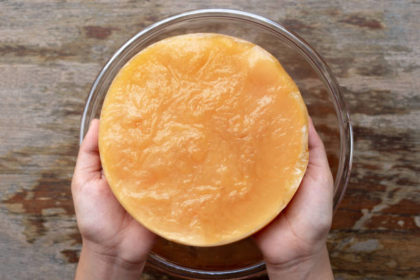
For decades, scientists and astronauts have studied if living on Mars is feasible. The harsh environment on the planet suggests few – if any – living things can survive. But new research has revealed something interesting: kombucha can survive in extraterrestrial conditions.
Scientists found the bacteria in a kombucha SCOBY, Komagataeibacter, can survive on Mars. The research, part of the Biology and Mars Experiment (BIOMEX), began in 2014, when kombucha cultures were sent to the International Space Station. Scientists hoped cellulose, “the genomic architecture of kombucha” could survive in space, and Komagataeibacter produces cellulose.
“Based on our metagenomic analysis, we found that the simulated Martian environment drastically disrupted the microbial ecology of kombucha cultures,” said Bertram Brenig, professor at University of Göttingen’s Institute of Veterinary Medicineand head of the study . “However, we were surprised to discover that the cellulose-producing bacteria of the genus Komagataeibacter survived.”
The cultures lived eighteen months outside the ISS, were reactivated on earth and cultivated for another two and a half years.
The study, published in Frontiers in Microbiology, “provides the first evidence that bacterial cellulose could be a biomarker for extraterrestrial life and cellulose-based membranes or films could be a good biomaterial for protecting life and producing consumer goods in extraterrestrial settlements.”
Read more (University of Göttingen)
